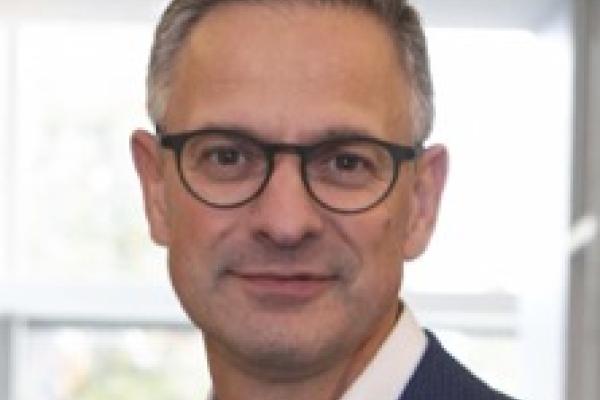
Colloquium: Professor Job Dekker, University of Massachusetts
Mechanism of Chromosome Folding
Event Details
- Time: 3:45 PM - 4:45 PM
- Location: 1080 Physics Research Building
- Faculty Host: Michael Poirier
Abstract: Chromosomes are intricately folded to facilitate accurate gene expression, DNA replication, and chromosome compaction and segregation as cells divide. I will start by briefly introducing the current understanding of how mammalian chromosomes fold, focusing on the two known mechanisms that are currently widely studied: spatial segregation of eu- and heterochromatin through biophysical phase separation, and chromatin loop formation through loop extrusion by molecular motors such as cohesin and condensin complexes. Then I will present two stories: First, I will present how a set of “rules of engagement” defines how encounters between condensins and cohesins are resolved to facilitate converting the interphase chromosome conformation into the classical X-shaped mitotic chromosomes. Second, I will introduce a third folding phenomenon: formation and resolution of chromosomal topological entanglements and knots. Entanglements are rarely studied because it has proven technically challenging. I will describe a new approach we developed to study topological entanglements, and present evidence that cells actively control the entanglement state of their chromosomes during the cell cycle.
Bio: Job Dekker received his undergraduate and graduate training at Utrecht University in The Netherlands. As a post-doctoral fellow in the laboratory of Nancy Kleckner at Harvard University, he developed chromosome conformation capture methodology. He is currently an Investigator of the Howard Hughes Medical Institute and Professor in the Department of Systems Biology at the University of Massachusetts Chan Medical School. His laboratory studies how genomes are folded in three dimensions. His work has led to insights into the formation of chromatin loops involved in long-range gene regulation, the organization of the interphase nucleus, the structure of metaphase chromosomes, and general folding principles of genomes. His group pioneered the use of genome folding data for genome assembly. Recently, his lab started exploring chromosome folding mechanisms in organisms with unusual genome organizations, such as dinoflagellates.
